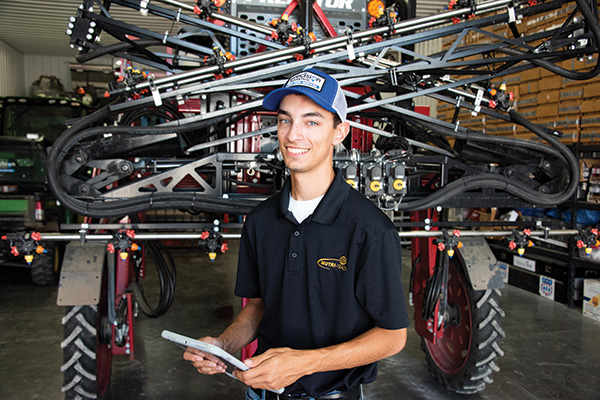
Industry professionals share their tips for students exploring agricultural careers.
From animal and plant science to sales and communication courses, agriculture students get a taste of diversity in the industry throughout their high school years. No matter which classes spark their interest and fuel their passion for agriculture, students can be confident in the opportunities available.
“If you have an interest in agriculture, the industry has a place for you,” says Jessica Kueffer, recruitment and employee development manager for MFA, Inc. “Whether you find expertise on the farm or in an office, it takes all kinds to make our industry thrive.”
Kueffer says this presents the opportunity for students to find a niche in the industry.
“As a student, you’re exposed to so much, so take a step back and ask yourself, ‘What do I enjoy seeing, doing or learning about most?’ ” she explains. “Then, look to higher education, whether it’s a technical school, community college or university, to build on the experience you’ve had thus far. If you enjoy what you’re learning about and working on, you’ll be building a career and not just working a job.”
Now more than ever, quick learners are in high demand.
“Our industry is quickly becoming more technology-driven, and there is a demand for students who have the skills to quickly learn these advances,” says Colton Spencer, who is a senior at the University of Missouri-Columbia and served as a student worker for MU College of Agriculture, Food and Natural Resources (CAFNR) Career Services the past two years.
In addition to soft skills such as public speaking and time management, skill requirements vary by profession.
“Specific skill development is highly dependent on the sector of the industry you choose,” Kueffer says. “Certifications, on top of higher education, can really set applicants apart. In today’s top talent we see certifications achieved in every realm of business, whether it’s in agronomy, precision technology, business, finance, human resources or sales.”
Kueffer notes that desired skills often go beyond what can be taught.
“Top skills are often related to the company’s values,” she says. “They are personal abilities that are not taught but lived out every day. At MFA, we believe that we can teach you the technical knowledge you need to succeed, but we can’t teach you honesty, accountability or communication. No matter where you go within the industry, you’ll need these three traits.”
While FFA is a good starting point for career exploration and personal growth, it doesn’t stop there.
“As a professional in employee development, I’m a firm believer in the idea of continuous learning,” she says. “Companies will hire you for who you are and how you fit with the company culture. You’ll excel in the role because of the gifts of knowledge you offer in the position. When you continuously focus on building your skills and performing a job better than the day before, you’ll find success.”
Students must be intentional about this continuous process.
“The advice I’d offer here: go to the class, attend the training, ask the questions and challenge yourself to grow every single day,” Kueffer adds.
This intentionality can start with seeking out opportunities in FFA. Spencer said involvement in the organization can help students explore agricultural careers and better prepare them for the workforce.
“I would say general advice is to become involved in every possible event through FFA, which will help students search for careers without even realizing it,” he said. “Career Development Events and other trainings are essential components of FFA that allow students to find their passions within the industry.”
Matt Arri, director of MU CAFNR Career Services, says taking advantage of professional development opportunities in high school could have a lasting impact.
“While the job market is very robust, the competition for the best positions is still very strong,” he says. “The more well-rounded an FFA member is, the higher the likelihood of them obtaining an internship while an undergraduate or landing their dream job after graduation.”
FFA can also be used to build connections with industry professionals.
“First, build your network,” Kueffer says. “Never be shy to talk to someone within the industry about their experience, their education or their journey. Then, build your resume and practice talking about your own experience, education and journey. Learning to tell your story will become easy.”
With many diverse opportunities in agriculture, students are encouraged to use their FFA background, network of connections and hands-on experience to explore multiple careers in the industry.
“We encourage students to obtain as many internships as possible to help them determine which industry and type of position they may want to have before they graduate,” Arri says. “We encourage everyone from freshmen to seniors to network with industry professionals at career fairs and through other means to learn more about career opportunities available to them.”
“My take-home message for students is to be active early,” Spencer adds. “Don’t wait to take advantage of opportunities. Act now and work to improve your skill set each and every day.”
—By Brandelyn Martin Twellman
—Photos courtesy of MFA, Inc.






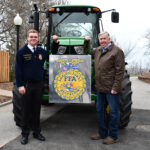
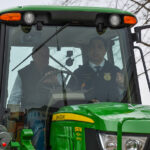
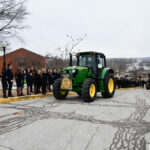

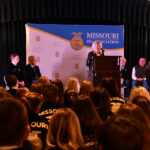
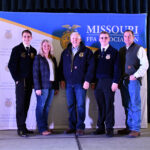
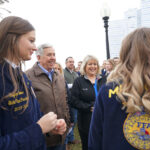
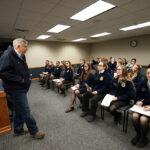
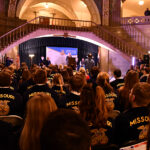
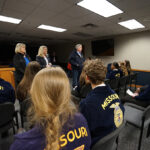
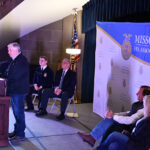

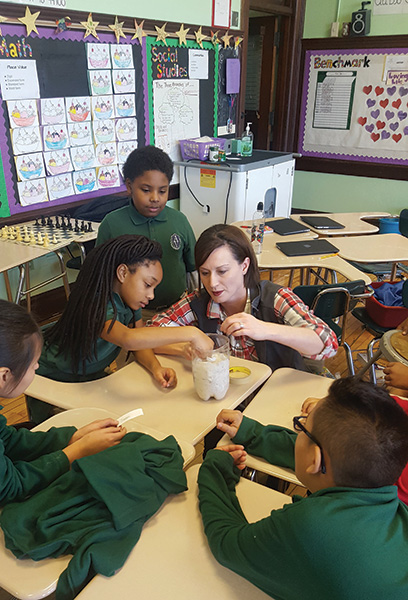

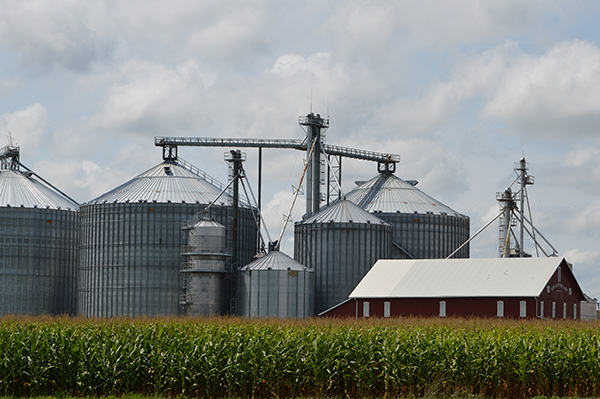

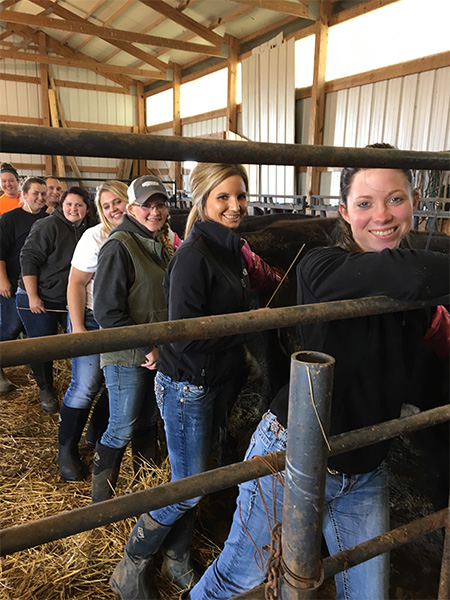
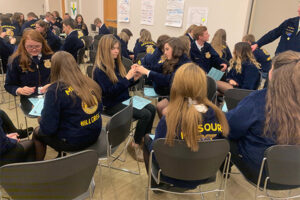
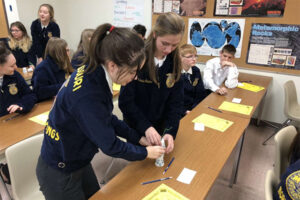
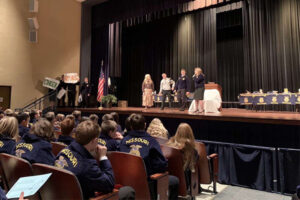
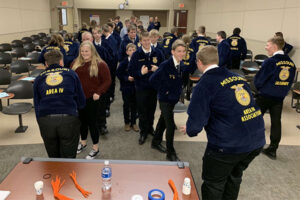
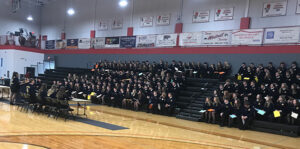
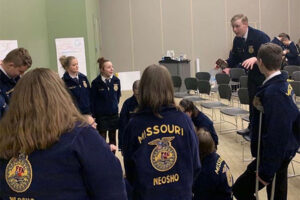
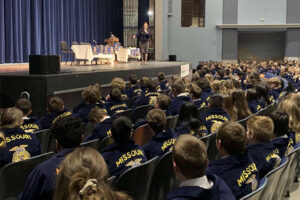
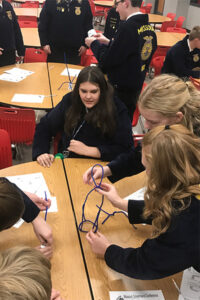
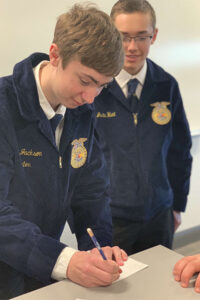
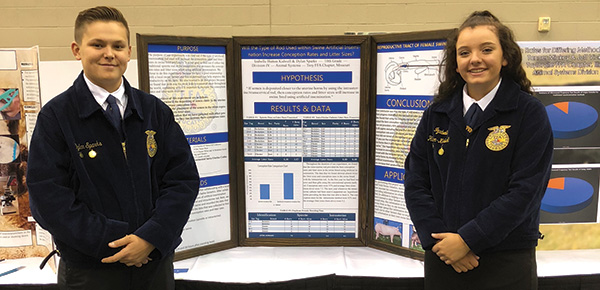
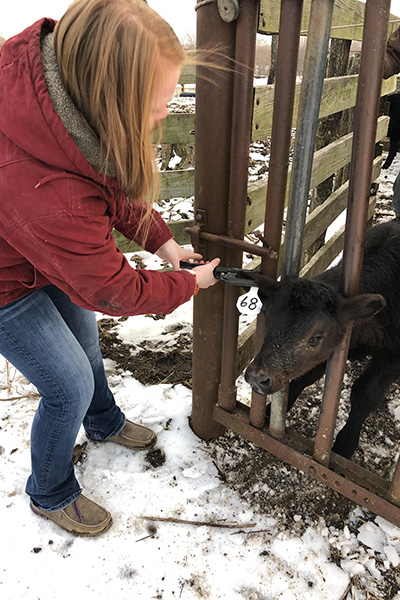
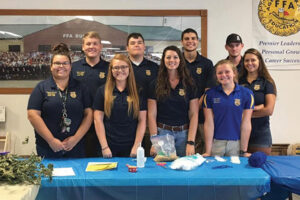 With more than 200,000 students and their families in Missouri, Agriculture Education on the Move (AEOTM) continues to grow, helping bridge the gap between farming and the non-farming public. The program aims to increase an understanding of agriculture in third-grade classrooms across the state.
With more than 200,000 students and their families in Missouri, Agriculture Education on the Move (AEOTM) continues to grow, helping bridge the gap between farming and the non-farming public. The program aims to increase an understanding of agriculture in third-grade classrooms across the state.